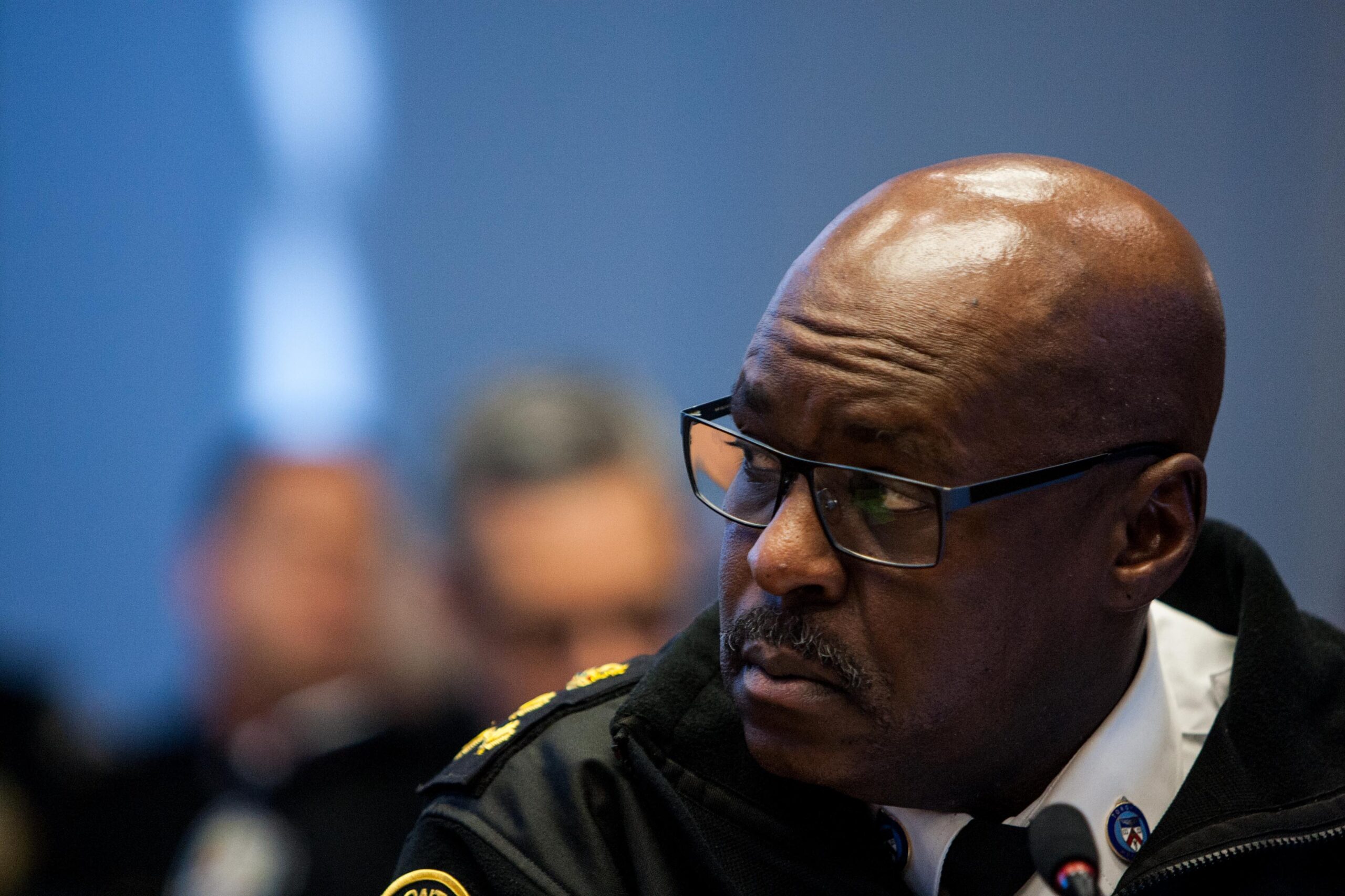Two months after Toronto police arrested alleged serial killer Bruce McArthur, the police services board has announced there will be an external review into how missing persons investigations are handled.
“For Toronto’s LGBTQ community, this has been a very difficult time and I know that many are very upset and many are still grieving,” Toronto police Chief Mark Saunders said on March 22, 2018, at a board meeting. “They have many questions about what happened and what could have been done differently.”
The external review will examine how Toronto police investigate missing persons cases, and will be in addition to an internal review that Saunders ordered after the deaths of Tess Richey and Alloura Wells.
Toronto police are also close to opening a dedicated missing persons unit that will have the sole job of looking for people who have disappeared.
Outside of Toronto police headquarters where the meeting was held, protesters demanded that Saunders resign.
“Saunders said something unforgivable when he blamed us for our friends’ deaths and dismemberments,” said Lisa Amin, a human rights lawyer and spokesperson for Queers Crash the Beat. “That’s why we’re asking for his resignation.”

Brian De Matos speaks during the Queers Crash the Beat protest at Toronto Police headquarters on March 22, 2018. Credit: Nick Lachance/Xtra
However, some members of the LGBT community believe that a full public inquiry, which would be ordered by the provincial government and have additional powers, should also take place.
“As recently as last December, we were being told by chief Saunders that our longstanding concerns about a serial killer preying on our community were not based on any evidence. He was wrong,” Lawyer Douglas Elliott said at a press conference earlier in the day. “He had a legal duty to warn us and instead he reassured us.”
Elliott, who has been involved in two public inquiries, believes that one should take place immediately, especially since many of the people affected are older and may not be able to take part if they have to wait for criminal proceedings to wrap up.
The wait for public inquiries in similar cases can take years. Robert Pickton, the notorious BC serial killer, was arrested in 2002. His trial ended in 2007 and the appeal process concluded in 2010. The public inquiry wrapped up in 2012, a decade after the initial arrest.
Since McArthur’s arrest, questions have arisen over why Toronto police shut down Project Houston and why McArthur was not arrested earlier.
Project Houston was launched in 2012 after three men — Skandaraj Navaratnam, Majeed Kayhan and Abdulbasir Faizi — disappeared between 2010 and 2012. But the investigation was shut down in April 2014.
Toronto police had at least two interactions with McArthur since the launch of Project Houston. In 2013, he was interviewed by police as part of the investigation, but was not charged.
After that investigation was shut down, McArthur was questioned and released after he allegedly choked a man during an otherwise consensual sexual encounter in 2016. The man reported the incident to police, but McArthur convinced officers that the choking was consensual and he was not charged.

 Why you can trust Xtra
Why you can trust Xtra


